Elyta: warm, vivacious, creative, sensitive to the needs of others, healer to people, plants and animals, beautiful inside and out.
Those of you who don’t know Elyta might recognize her from the photo above with our friend Pat — we often use this photo on our website and in our printed materials. It really captures the kind of care and connection we aspire to offer with Coral Tree; and also captures the warmth and friendship between Pat and Elyta — that special kind of connection. Elyta is like family for those she cares for.
“Through my faith I have a better understanding of my purpose: I am here to help others.”
Growing Up in Malang
Elyta grew up in Indonesia, in Malang, the second biggest city in East Java (after Surabaya, the capital of the province).
She is the eldest of four children and grew up in a multi-religious home. “We have a different kind of family who all practice different types of religion, but so far we’re getting along!” she jokes. Her father was Muslim (he passed away in August of last year), her mother is what Elyta calls “Spiritual” — the same faith that Elyta practices; her two brothers are Muslim; and her sister is Buddhist. Elyta says it’s fairly common to have multi-religious families in Indonesia.
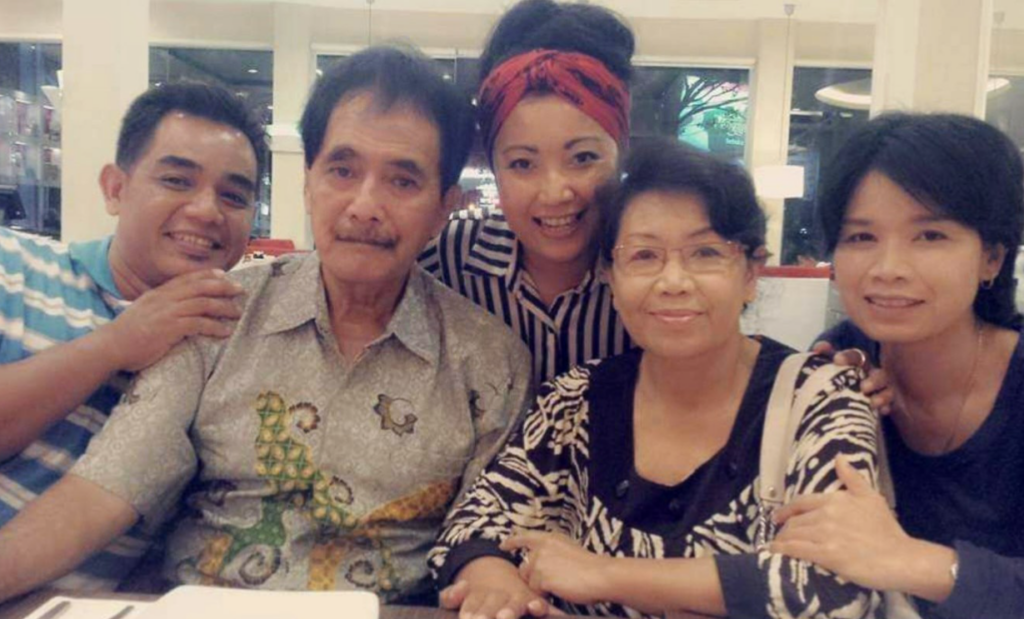
Elyta (center) with one her brothers (she has two), her father, mother, and sister in Indonesia in 2018.
Elyta and her mother believe in and have faith in God, but also pay homage to their ancestors. “We believe we all have a guardian angel,” Elyta says. “That’s what my mother taught me — usually a grandparent or another family member who passed before us. Every full moon we pray to God, and we also pay our respects to our ancestors, and make special offerings: fruit, flower, water, incense. Our ancestors really love these offerings, and in return, help look after us, like angels.”
Elyta says her faith has helped her develop a more hopeful outlook on life. “God has a plan; the Universe has a plan,” she says. “Also, through my faith I have a better understanding of my purpose: I am here to help others.” Elyta channels this devotion and sense of purpose into her caregiving.
In Malang, Elyta worked in guest relations at a resort and also started her own small business making homemade soybean milk. The company is still running! Elyta’s sister oversaw it first, and now one of her cousins runs it.
“We aren’t as busy as we once were but customers still love our soy milk.” Elyta says.
Moving to the US & Caring for Her Grandmother
Elyta moved to California in late 1999 when she was 27 — she wasn’t planning to become a caregiver, but her uncle asked her to come help care for her 95-year-old grandmother in Hawthorne.
Elyta’s grandmother really appreciated the way Elyta looked after her; and felt that Elyta had a gift. She encouraged Elyta to go to school to train to become a nurse.
“My grandmother kept telling me: ‘You have to be do some kind of caring work because you are so good at it!’ I didn’t have any experience before looking after her, but decided to give it a try and went to school. I didn’t even know how to speak English then!”
Elyta completed both her CNA and Home Health Aide training and began working first as a caregiver in a facility (where there are usually a handful of caregivers looking after all residents), and later began doing one-to-one care for clients with agencies like Coral Tree.
Joining the Coral Tree Family
Elyta started working with Coral Tree in 2013 (she learned about us from a friend), and has worked exclusively with us since then.
“I’m so grateful to be with Coral Tree,” Elyta says. “I’m so happy. You guys are like my family, too, you know.”
Living in the US
Elyta loves living in the US and working with her elderly friends. “I love working as a caregiver, and I am so lucky to be here,” she says.
One of the things she appreciates the most about living in the States is that you can always continue studying and learning here — there’s no “agism” against adults going back to school. “There’s a lot of opportunity here,” she said. “And it doesn’t matter how old you are, you can still take classes. In Indonesia, when you reach a certain age you can’t go back to school anymore — it would be really unusual to do something like that. But here, no matter what your age, 50, 60, 65, 70, you can still go back to school, right? I really like that about this country.”
Understanding the Pain of Alzheimer’s
Elyta’s mother was diagnosed with Alzheimer’s when she was only 55 years old. Her father cared for her mother until he passed away last year. Her two brothers and sisters-in-law in Malang look after her mother now.
“My Mom doesn’t remember me,” Eltya says. “So it’s very hard. I really understand how hard it can be for a son or daughter. I really understand that. And the long distance is very hard too.”
But by working here in the U.S., Elyta is able to cover the costs of her mother’s Alzheimer’s medication, which is really expensive in Indonesia. She’s grateful to be able to offer that support to her family.
Choosing to Be a Caregiver Rather Than a Nurse
Elyta loved the one-to-one work with her elderly friends so much that she decided to forgo her nursing studies (which generally comes with a bigger salary and more job security).
“I love this job.” Elyta says. “People will say: You’re a good caregiver, why don’t you become an RN or LVN? Well, to that I say: If everybody became a doctor, an RN or an LVN, who’s going to actually take care of people?!” Elyta laughs. “Of course, we need doctors and nurses and we give thanks for them. We are so grateful. But we also need people who are going to work in the field, directly taking care of patients, right? Who is going to do that? The caregivers, CNAs, and home health aides, that’s who. We might have a lower degree, but we are so honored to do the work we do. We are so honored and so proud to work as a caregiver.”
The Benefits of Long-term Care
Elyta also feels that as a caregiver she can really benefit the people she cares for in a deeper, more holistic way — caring for all aspects of a person on a daily basis — rather than just having time to check someone’s vital signs or physical symptoms during a time of crisis and then needing to rush to the next patient (as often is the case for nurses).
There’s so much benefit, she feels in being able to provide long-term, day-to-day care care: really getting to know a person, understanding their daily mental and physical needs, anxieties, fears, likes and dislikes, and making their day-to-day experience of life healthier, more relaxed, secure, and comfortable.
“I love this kind of job,” she says. “I really enjoy applying anything I’ve learned to help our friends feel better.”
Loneliness
Loneliness is the main suffering Elyta says she witnesses among the elderly here in the U.S. (whereas in Indonesia, people generally live more closely together and often in multi-generational homes, she said).
Also, in Indonesia, Elyta explained to me, all children are involved in their parents’ care — both sons and daughters share the responsibility; whereas here in the U.S., her experience has been that there’s often one child, usually a daughter, who oversees a parent’s care.
“When I came here I saw a lot of parents who have four or five kids, but only one of the kids is involved in taking care of the parent,” Elyta said. “That was new for me.”
As far as the loneliness experienced by so many, “we really need to try out best to be compassionate,” Elyta says. “I always encourage the kids, if you have time to call, even for just three or five minutes, to say hi to your parents, that can really make a big difference in their lives.”
We underestimate how much of a difference a little bit of regular human contact, a brief chat on the phone every day, can make in someone’s life, Elyta says. “It really changes someone’s life,” she says. “I’m so happy right now because one of my clients — one of her daughters calls her every day — even if just to talk for only two or three minutes. It really lifts her mother’s spirits every day.”
Gardening Is Healing & Helps Create a Feeling of “Home”
Elyta loves to garden and says the last six years she’s incorporated gardening into her care for her friends.
She invites them to help her and they garden together, or sometimes they prefer just being with her while she gardens, she says. Even a simple daily activity like caring for a few potted plants, Elyta says, or being together while she works in the garden, her friends helping her with advice — doing this simple, joyful activity together — can be therapeutic.
She says gardening feels healing both of them, “and when they see the flowers start to bloom, they feel so happy,” Elyta says.
Gardening with clients also helps Elyta relax and feel like she’s “home,” she says; and that feeling of being “home” helps her better concentrate in her care for others. When Eltya feels comfortable, clients can feel that energy, she says — there’s a mutual feeling of refuge, safety and respect; and that she’s happy to be there, caring for them. Gardening is one way to help create that experience of “home,” she says.
“I love my work,” Elyta says. “I really enjoy helping my clients feel better and change for the better. I love it. I feel so honored and proud that I can help this person to feel better, and then he or she is having a good life in the long run, and their kids are happy… That’s what we caregivers love.”
A Love for Animals
Elyta’s sense of care also extends also to animals. She has rescued and cares for a houseful of cats, both indoor and outdoor, including ones she brought back from her last visit to Indonesia in 2018!
“They choose me!” she insists. “I don’t choose them. They just come to me. I am so grateful. I don’t have kids but I have cats. I have to watch over them. That’s why I have to work so hard to pay for all their food,” she jokes.
Elyta’s also rescued injured squirrels, hummingbirds, ducks, and so many geese that she’s become a member of International Bird Rescue in San Pedro.
“I just love helping animals, too,” she says. “It’s like my second healing after I watch over the elderly. I’m good at dealing with elderly and animals, but kids, I can’t do that!”
The Epitome of a Caregiver
“To me Elyta is the epitome of a caregiver,” Cassidy says. “She does her job so thoroughly, all the way around: looking after the client, taking them to appointments, keeping good contact with the family, keeping in contact with me — she’s a natural communicator — and also looks after every aspect of care.
“Her personality also comes through strongly in her care. She’s outgoing and exuberant and I can immediately sense her personality in how she’s doing everything: her willingness and enthusiasm, her concern for our clients, and also her own happiness in looking after them. Somehow that’s very apparent with her.
“She’s also very nurturing and has the greenest thumb of anyone I know. She’s an orchid wonder and can make anything grow or come back to life. I don’t know how many orchids she’s resuscitated! And that nurturing aspect really comes through in her work with our clients, too.
“Elyta helps people relax, and I think they feel so comfortable and safe with her — which is really important. With age, you often become more fragile, sensitive, and isolated. I think her attention helps them kind of blossom. This is where her creativity comes in. All those fears that can be running through your head when you live alone disappear with her nurturing presence.”
Dealing with Grief
Recently Elyta lost a dear friend that she had cared for for several years. “She was a very special person,” Elyta said. I asked her how she deals with losing someone she’s cared for and been so close with, and if it’s hard to continue working when you’ve lost someone.
“We grieve, but we cannot grieve forever,” Elyta said. “Because somebody else now needs our help.”
Q & A with Elyta
What qualities does a good caregiver have?
A good caregiver is compassionate, patient, and treats our elders with respect.
Also, heart is so important. Not all caregivers can really be a caregiver. Everything comes down to your heart — if you don’t practice patience, compassion, respect — it’s hard. Then you are just working as caregiver but without the heart. The heart is key. It’s the same with doctors and nurses. There are a lot of doctors and nurses but only a few come from the heart.
What advice would you give your younger caregiver self?
You have to practice compassion. That’s very important in taking care of the elderly. And also patience.
And in order to take care of others well, you also have to take care of yourself. I learned that the hard way. Sometimes you can be so focused on taking care of somebody and you forget to take care of yourself, forgetting to eat, for example. Because you’re so focused, and your client is getting better and you forget to take care of yourself. And then before you know it, you become ill and then everything falls apart. That’s what I learned. I learned that the hard way.
It’s also very important that you have support. Like with Coral Tree, we have support [the way our care managers Cassidy, Cynthia, Christina, Marta & Natasya support our caregivers]. I really appreciate and love that. We’re not just working on our own, just taking care of the client and everything you have to deal with on our own. That can be really stressful. For good care it’s important to have support, a team. We cannot do everything on our own.
Further Reading & Resources
- Coral Tree Blog: Wisdom | The Healing Power of Gardens by Dr. Oliver Sacks
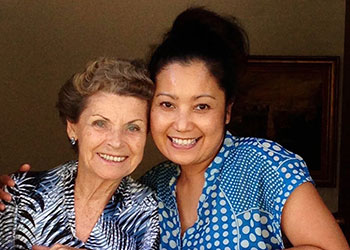
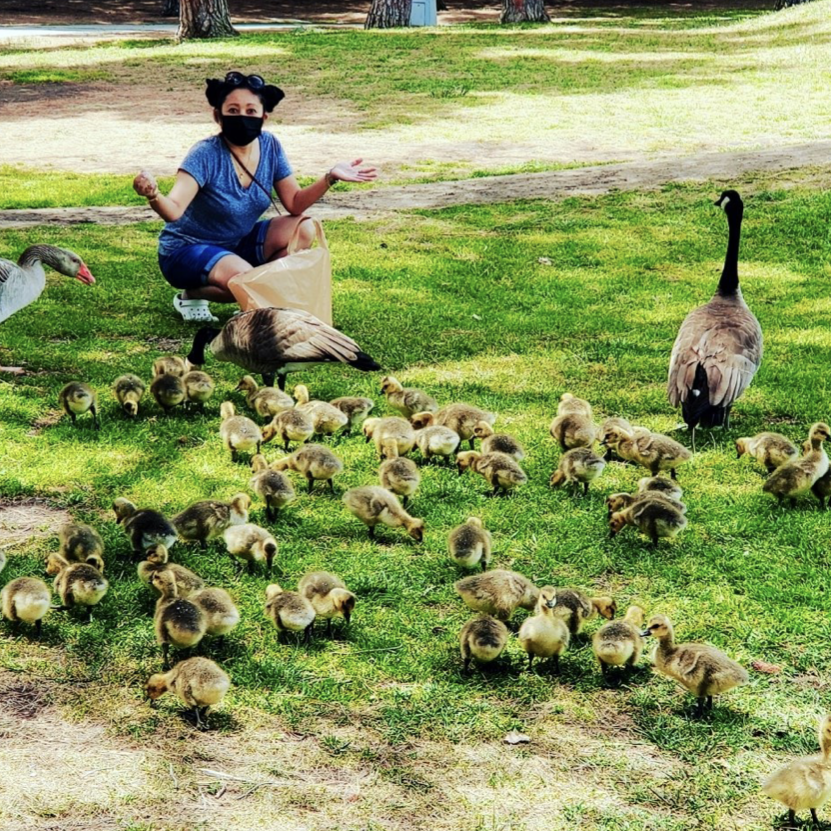
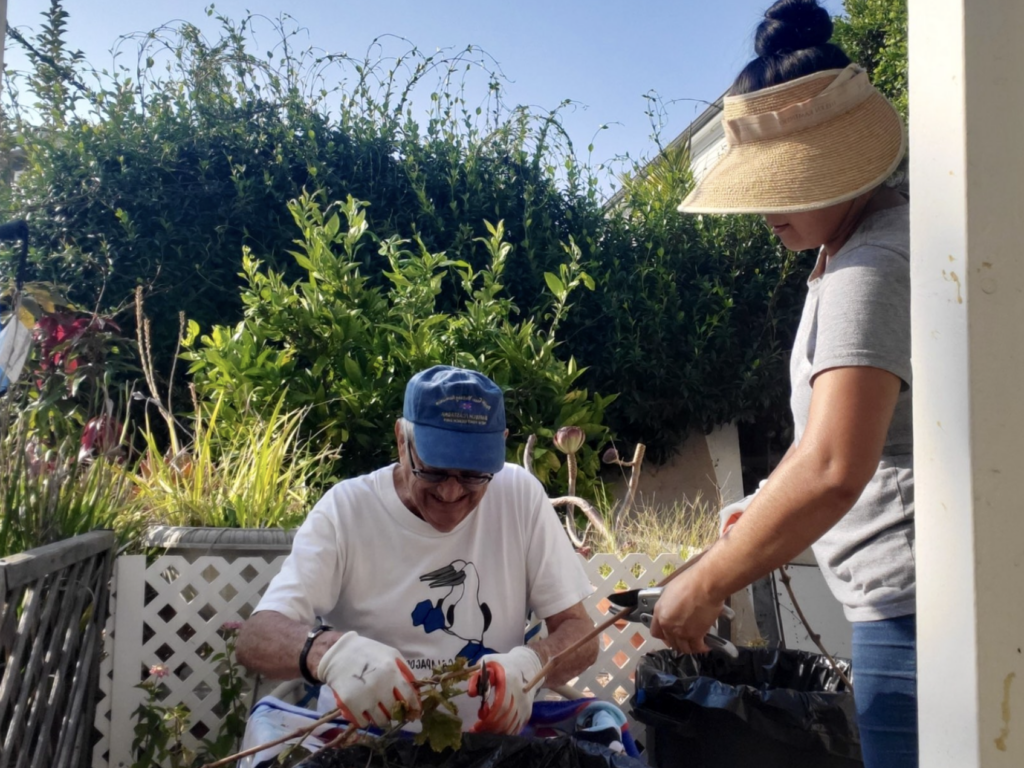
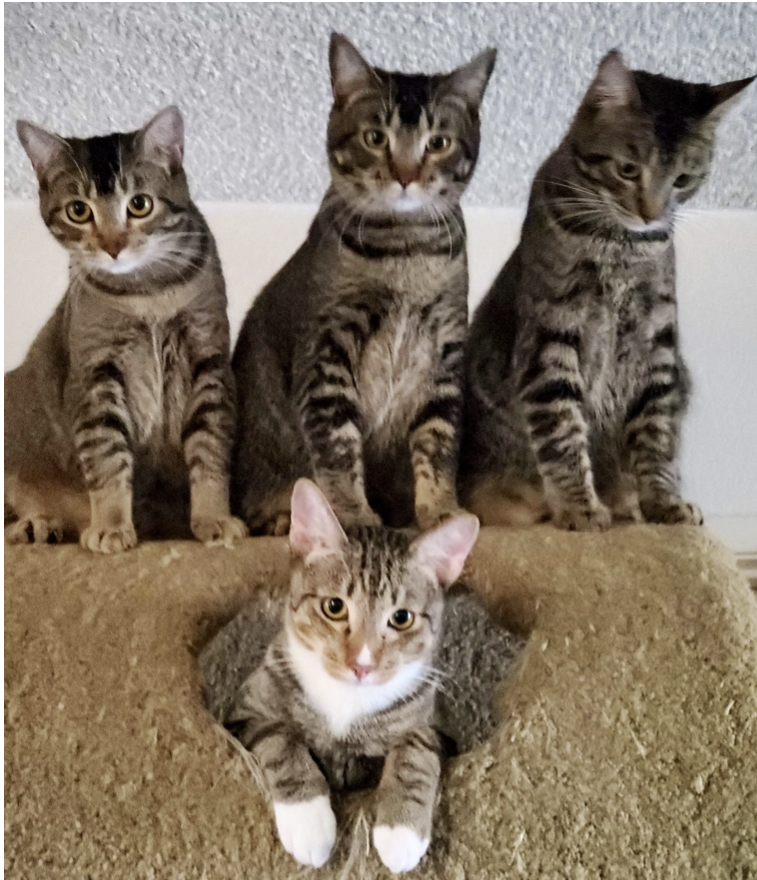
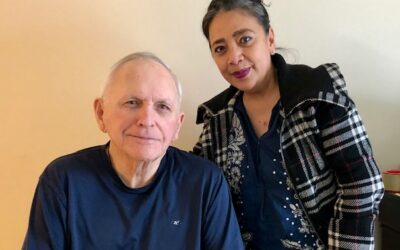



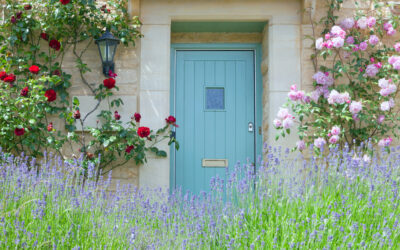

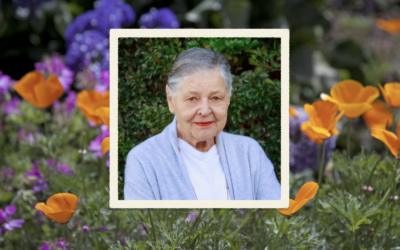
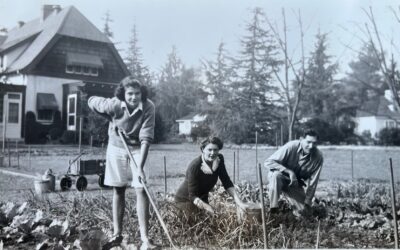
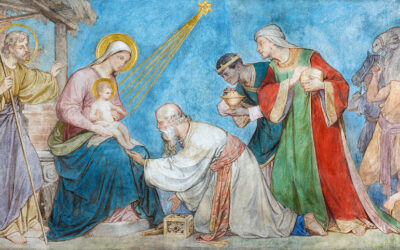
0 Comments